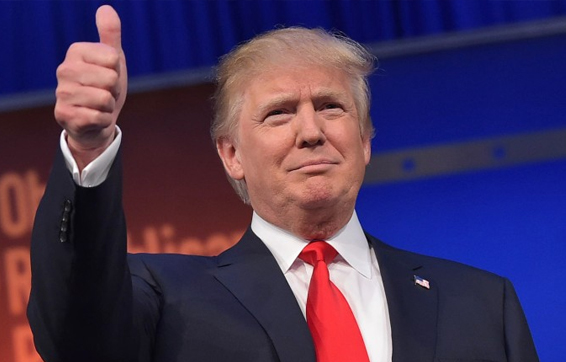 A national survey experiment of nearly 2,000 people done by a University of New Haven
senior shows that people already have crystallized their opinions about both Donald
Trump and the Republican party and whether or not they will vote. The survey takers
said they are not affected by controversial statements that the candidate makes.
A national survey experiment of nearly 2,000 people done by a University of New Haven
senior shows that people already have crystallized their opinions about both Donald
Trump and the Republican party and whether or not they will vote. The survey takers
said they are not affected by controversial statements that the candidate makes.
The survey experiment results also show that a blitz of advertising done by the presumptive
Democratic candidate, Hillary Clinton, will likely not wear away at Trump's popularity.
Trump's support, registering near 40 percent across most current national polls probably
means a close election in the fall.
Using an online sample, the survey experiment shows that people's opinions of Trump
are the same whether or not they read his remarks claiming that Mexicans are rapists,
or saying the U.S. should ban entry by Muslims, or his support for a border fence,
or his references to the privates of newscaster Megyn Kelly.
Moreover, even swing voters (independents) were unfazed by Trump's rhetoric. The experiment
revealed that independents were no more likely to support Trump after reading about
his controversial comments than independents who did not.
"The survey suggests that people are probably looking for a leader who makes strong,
declarative, bold, politically incorrect statements," said Victoria White, a senior from Poughkeepsie, N.Y. "Voters don't really care about the inflammatory
content of those statements."
White did the survey experiment as part of a Summer Undergraduate Research Fellowship
(SURF) program supervised by Chris Haynes, assistant professor of political science.
The survey experiment does show differences among sub-groups, White said. African
Americans who read Trump's statements felt more positive toward Trump than those who
did not by a wide margin, counter to what might be expected.
And the public's opinion of the Republican Party was the same whether or not the survey
takers had read Trump's remarks or not.
One thing Trump's remarks did change, however, was the public's view of independent
candidate Gary Johnson. The group of people who had read Trump's remarks was more
likely to vote for the third party candidate.
"The survey suggests that people are looking for a strong leader who makes bold statements,"
said Haynes. "It seems counter intuitive but voters right now absolutely don't trust
government and are looking for a strong candidate who doesn't speak the language of
the traditional political establishment that many voters detest."
Donald Trump photo credit: Mandel Ngan, AFP, Getty Images

 A national survey experiment of nearly 2,000 people done by a University of New Haven
senior shows that people already have crystallized their opinions about both Donald
Trump and the Republican party and whether or not they will vote. The survey takers
said they are not affected by controversial statements that the candidate makes.
A national survey experiment of nearly 2,000 people done by a University of New Haven
senior shows that people already have crystallized their opinions about both Donald
Trump and the Republican party and whether or not they will vote. The survey takers
said they are not affected by controversial statements that the candidate makes. 
